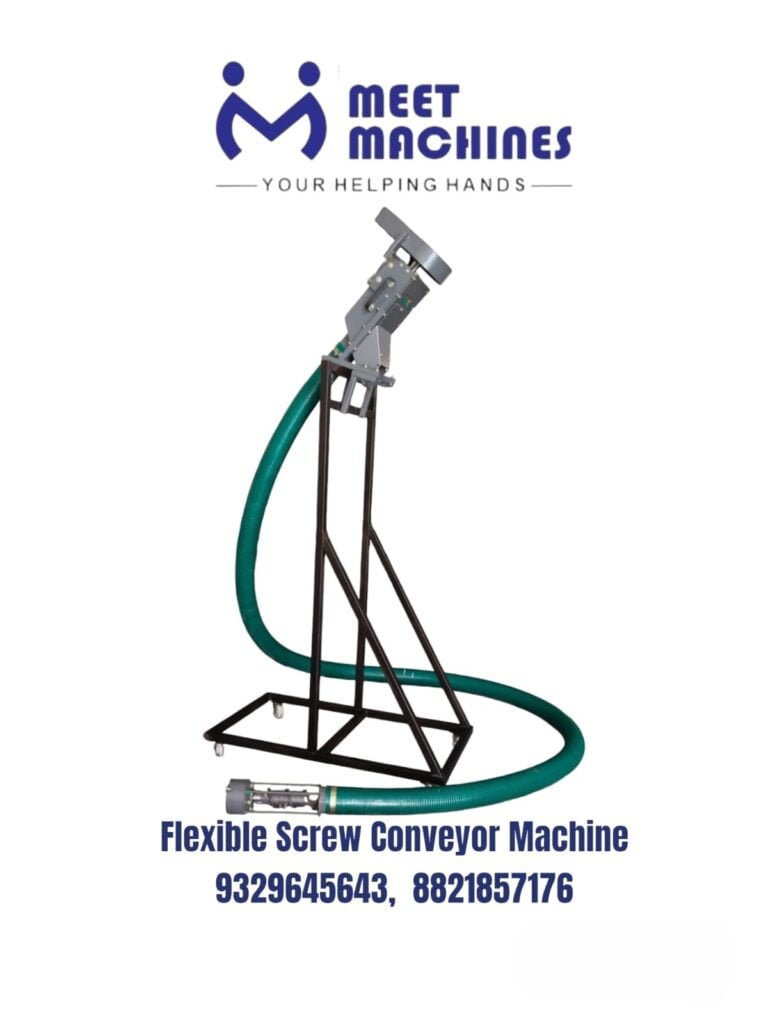Flexible screw conveyors are specialized equipment designed to efficiently transport a wide range of materials, from food and pharmaceuticals to chemicals and plastics. Unlike traditional rigid conveyors, these systems feature a flexible tube that can be easily routed around obstacles, making them ideal for applications with complex layouts or limited space, It is also known as flexible Auger conveyor or flexible screw feeder in some places.
Key Features and Benefits:
- Flexibility: The primary advantage of flexible screw conveyors is their ability to navigate around corners, curves, and other obstructions. This flexibility allows for efficient material transport in confined spaces or buildings with irregular configurations.
- Durability: Constructed with high-quality materials, these conveyors are designed to withstand harsh environments and heavy loads. They are resistant to abrasion, corrosion, and other factors that can shorten the lifespan of conventional equipment.
- Gentleness: Flexible screw conveyors are gentle on delicate materials, preventing damage or breakage during transport. The smooth rotation of the screw and the protective nature of the tube ensure that products remain intact.
- Efficiency: These conveyors offer excellent efficiency in energy consumption and throughput. The continuous motion of the screw efficiently moves materials, minimizing downtime and maximizing productivity.
- Ease of Maintenance: Flexible screw conveyors require minimal maintenance, reducing operational costs and downtime. Regular inspections and cleaning are typically sufficient to ensure optimal performance.
- Versatility: Flexible screw conveyors can be used in a wide range of industries and applications, from food processing to waste management. Their versatility makes them a valuable tool for businesses of all sizes.
- Cost-Effectiveness: While the initial investment in a flexible screw conveyor may be higher than that of a traditional conveyor, the long-term benefits, such as reduced maintenance costs and increased efficiency, can make them a cost-effective solution.
Applications of Flexible Screw Conveyors:
- Food Processing: Transporting ingredients, finished products, and byproducts in food manufacturing facilities.
- Pharmaceutical Industry: Handling sensitive pharmaceutical materials, including powders, tablets, and liquids.
- Chemical Processing: Conveying various chemicals, including corrosive substances, safely and efficiently.
- Waste Management: Transporting waste materials, such as food waste or industrial byproducts, for proper disposal.
- Plastics Manufacturing: Moving plastic pellets, flakes, and other materials in plastic processing plants.
- Agriculture: Transporting grains, seeds, and other agricultural products.
- Construction: Conveying building materials, such as sand, gravel, and cement.
Choosing the Right Flexible Screw Conveyor:
When selecting a flexible screw conveyor, it is essential to consider factors such as:
- Material Properties: The type and characteristics of the material being transported will influence the conveyor’s design and materials.
- Capacity: The required throughput will determine the conveyor’s size and power requirements.
- Environmental Conditions: The operating environment, including temperature, humidity, and potential contaminants, should be considered.
- Layout and Space Constraints: The available space and the desired conveyor route will impact the design and installation of the system.
- Safety Considerations: Ensure the conveyor meets all relevant safety standards and regulations.
By carefully considering these factors, you can select a flexible screw conveyor that meets your specific needs and provides reliable, efficient material handling.



Leave a Reply